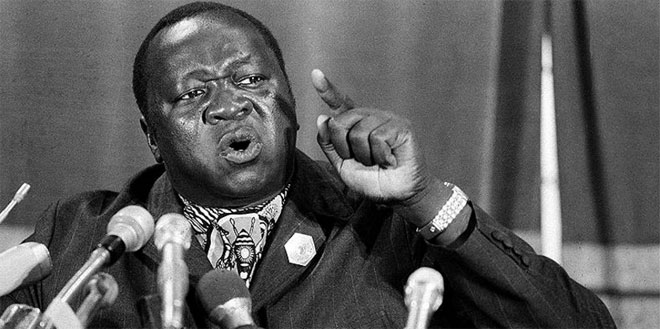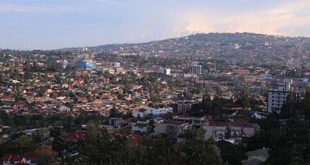
Age differences are a factor in how Ugandans perceive the presidency of Idi Amin Dada, 39 years after the flamboyant military general was overthrown
Kampala, Uganda | URN | Ugandans who witnessed President Idi Amin Dada’s reign from 1971-1979 have described the former president as a cruel dictator, while youthful persons say Amin a good leader in the time.
.On April 11, 1979, General Amin’s eight-year rule came to an end after Ugandan exiles, with support from the Tanzanian army, stormed Kampala. Amin, who had taken power in a military coup in January 1971, fled into exile in Libya and later Saudi Arabia, where he lived until his death in August 2003.
Amin was feared and labeled a brutal dictator, an image largely created by the actions of his government and the way they were framed by the international media.
The State House website frames Amin’s presidency as one that “shook the world in different ways through his antics and was at one time one of the most ‘feared’ dictators in the world”. The website goes on to say that while began his rule by releasing all political prisoners and appointing an all-inclusive cabinet, underneath all of this were numerous murders of over 1,000 soldiers, especially of those that hailed from Northern Uganda.
This image appears to be fading 39 years later, at least among the young people. Several people have expressed varying views about the former president, with the older generation insisting they have nothing good to say about Amin, while the younger ones saying Amin did a lot for the country.
Dr Martin Aliker, a veteran dental surgeon, businessman and politician, says Amin was a bad and cruel man whose regime cannot be compared to the current government.
Aliker says that as president, Amin failed Uganda, citing issues of brutality, killings of civilians and targeting the northerners. Aliker says he was himself targeted as an Acholi by Amin, because the president hated the Uganda Argus newspaper.
The Uganda Argus was a private English language newspaper started in 1955. In the 1960s, Aliker became its board chairperson until 1972 when Amin nationalized the paper and renamed it Voce of Uganda. Aliker ran into exile in Kenya shortly after and would only return in Uganda after the fall of Amin.
In what could turn out to be a controversial comparison, Aliker likened Amin to US President Donald Trump “who fires anyone and hires them anytime.”
He says the lesson from the Amin regime is that Ugandans should never vote cruel or support what he called cruel leaders into power.
On the changing perception of Amin’s image, Aliker says that Ugandans heaping praises on Amin did not experience his wrath.
Ndawula Seguya, 69, who says he witnessed Idi Amin’s brutality, says Ugandans were excited when Amin overthrew Obote in 1971, but this was short-lived.
Seguya claims Amin killed some people by himself, citing the example of Archbishop Janani Luwum. He says the mistreatment of people is what made Amin worse than the leaders before him and those who came after him.
He however says there was a lighter side of Amin, adding that some of the atrocities were committed by his soldiers without the president’s knowledge.
Timothy Kalyegira, a veteran journalist says Amin was a nationalist who cared for Ugandans. He says, for instance, the expulsion of Asians in 1972 showed that Amin cared for Ugandans to work. He says Ugandans do not even remember 1986 when President Museveni came to power, and that the history of Amin can be forgotten since the current regime has taken long.
According to Kalyegira, there are rights violations in Uganda that currently make people forget about Amin. He says that as time goes on people forget the past and concentrate on the present.
He says to those who did not witness the brutality of Amin, he could be a hero, while those who are currently witnessing heavy deployment of security, widespread corruption in the country could term it a worse regime.
He says because the people that Amin could have defended are not there, everyone now concentrates on the current Government. Kalyegira says the current Government cares about pleasing the West, and yet Amin cared more about Ugandans.
Hussein Lumumba Amin, Amin’s son, says his father should be credited for building the economy of Uganda. He says as it stands, many Ugandans see Amin as a hero, pointing out expulsion of Asians and appointing female leaders one of the features in Amin’s legacy.
 The Independent Uganda: You get the Truth we Pay the Price
The Independent Uganda: You get the Truth we Pay the Price


